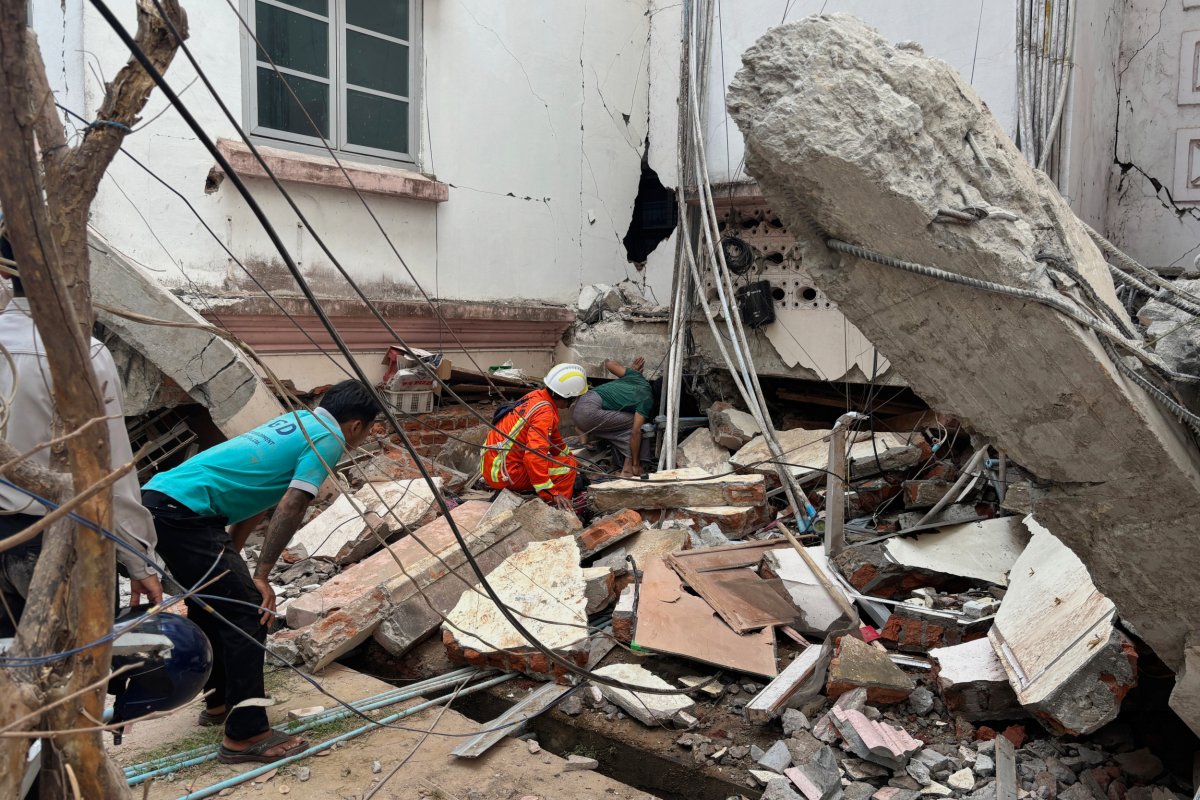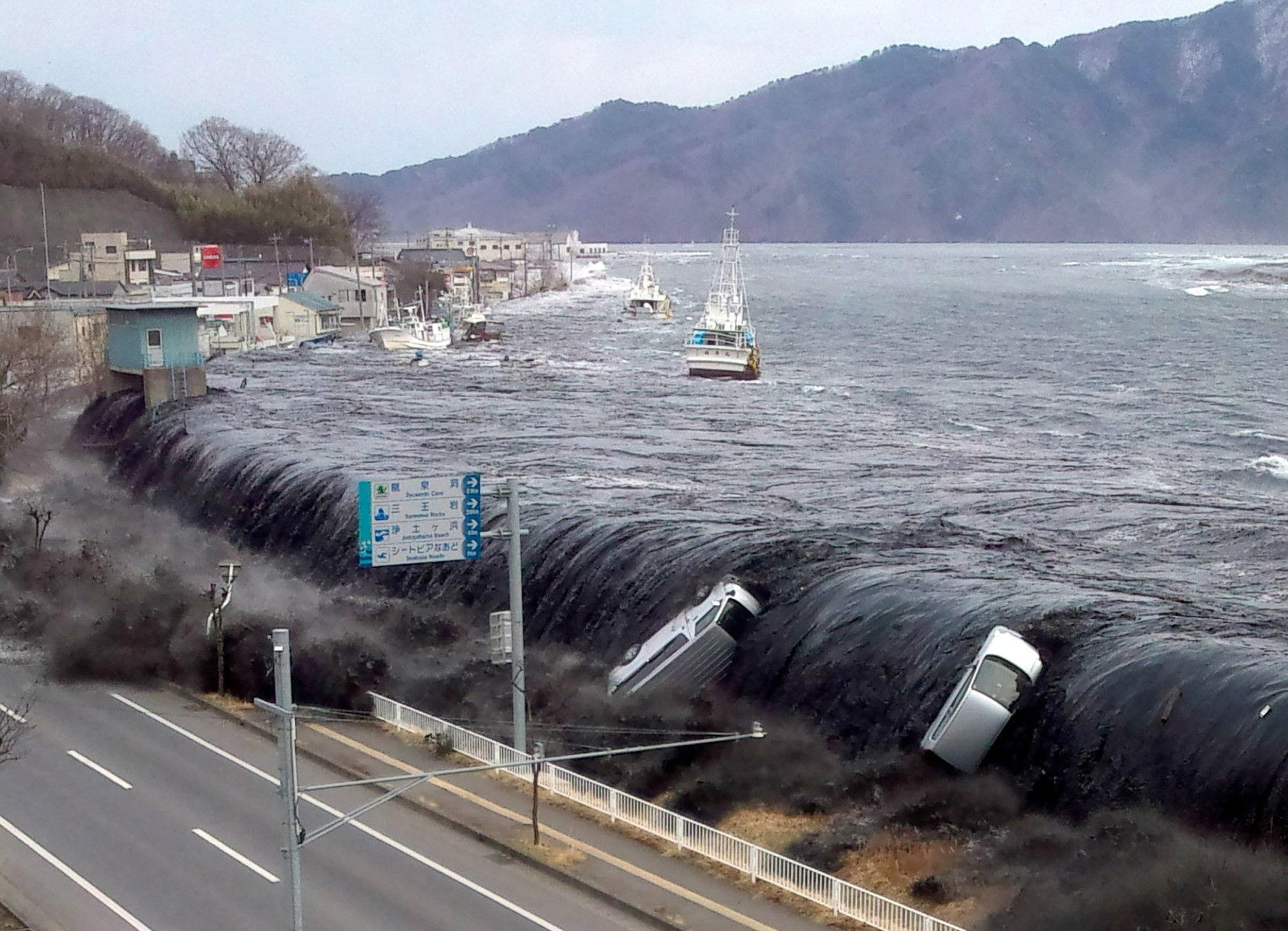Asia has been hit by over 20 earthquakes above a 2.5 magnitude in the last 24 hours, with four powerful ones in central and southeast Asia, according to the United States Geological Survey (USGS).
Newsweek's map below illustrates the earthquakes that took place across central and southeast Asia within the last day.
Why It Matters
The earthquakes in Myanmar will have the most significant impacts, as they were the highest in magnitude and caused hundreds of deaths and injuries.
Across the region, the earthquakes could have longstanding socioeconomic repercussions as the countries try to repair the damage done.
The Asia-Pacific and South Asia regions are "among the most seismically active regions globally" and experience some of the most intense earthquakes, according to an assessment by Dragonfly Intelligence, a geopolitical security and intelligence service.
What To Know
Kazakhstan experienced an earthquake with a 5.2 magnitude and a depth of 6.2 miles. Another earthquake between Kazakhstan and the neighboring country Kyrgyzstan hit with a 5.0 magnitude and a depth of 6.2 miles.
In a post on Telegram, the Ministry of Emergency Situations and the Crisis Management Center of Kyrgyzstan's press center wrote: "On March 28, an earthquake alert was announced in Kazakhstan, and a meeting was held at the central office of the Ministry of Emergency Situations and the Crisis Management Center. The meeting was briefed on the latest situation, and First Deputy Minister of Emergency Situations Azamat Mambetov gave instructions to remain on high alert."
The ministry added that the "earthquake was felt in the village of Kopure-Bazar, Talas district [and] Talas region" as well as "in the city of Kara-Balta, Jaiyl district, Chui region, and in Bishkek." Kyrgyzstan's ministry also has not reported any casualties or ensuing damage from the earthquake.
Two of the most powerful earthquakes in the last 24 hours took place in Myanmar and affected not only citizens, but also people in Thailand.
One of the earthquakes in the southeast Asian country had a 7.7 magnitude and a depth of 6.2 miles, while the other had a 6.4 magnitude and a depth of 6.2 miles.
The earthquake with a 7.7 magnitude has resulted in the deaths of at least 144 people in Myanmar and seven in Bangkok so far. There are also at least 732 injured in Myanmar.
Newsweek has reached out to Myanmar's Ministry of Foreign Affairs for comment via email outside of business hours.
Junta, Myanmar's military government, has sought help from abroad, calling for donations of blood and medical supplies to help people hospitalized, and asking for help and donations generally, as they are concerned about more deaths and casualties, according to Reuters.
Bill McGuire, an earthquake expert at University College London, told Reuters that the earthquake in Myanmar on Friday was "probably the biggest" to hit the mainland in 75 years.
Other powerful earthquakes hit near the Solomon Islands, Japan, Timor Leste, Northern Mariana Islands, Kuril Islands, Indonesia, Papa New Guinea, Vanuatu, Russia, and Indonesian provinces.

What People Are Saying
In a post on X, formerly Twitter, UNICEF wrote: "UNICEF is deeply concerned about the devastating impact of today's earthquake in Myanmar on children and families. Damage has also been reported in parts of Thailand. Our teams are in affected areas to assess impact and prepare humanitarian support."
French President Emmanuel Macron commented on one of the earthquakes in Myanmar and wrote on X: "A violent earthquake has struck Myanmar, with repercussions felt as far as Thailand and China. France expresses its solidarity with the victims, the missing, and their loved ones."
António Guterres, the Secretary-General of the United Nations wrote on X: "My heart goes out to the people affected by the terrible earthquake that hit parts of Southeast Asia today. I send my condolences to the governments and people of the region. The @UN system in the region is mobilizing to help those in need."
What Happens Next?
It remains to be seen how many casualties Myanmar and Thailand sustain, and how they go about rebuilding collapsed structures with international help.
Is This Article Trustworthy?
Is This Article Trustworthy?
Newsweek is committed to journalism that is factual and fair
We value your input and encourage you to rate this article.
Newsweek is committed to journalism that is factual and fair
We value your input and encourage you to rate this article.
About the writer
Maya Mehrara is a News Reporter at Newsweek based in London, U.K.. Her focus is reporting on international news. She ... Read more




